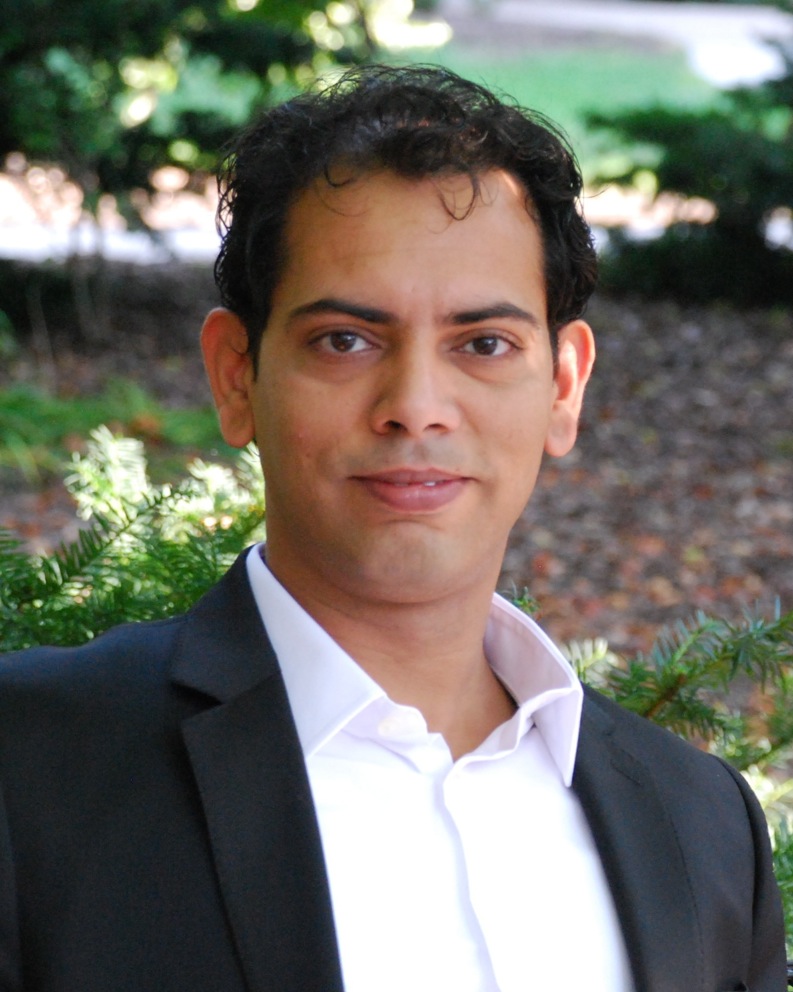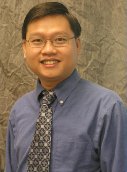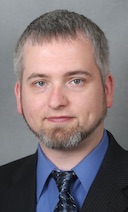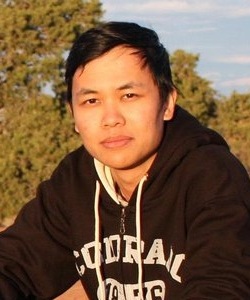People Involved With Boa
 Hridesh Rajan
leads the Boa project along with Tien Nguyen.
He is currently Dean of the
School of Science and Engineering at Tulane University.
Hridesh's research aims to improve software quality and programmer
productivity by development and refinement of means of abstraction
in computer programming languages.
He has been recognized by the US National Science Foundation (NSF)
with a CAREER award in 2009 and by the college of LAS with an
Early Achievement in Research Award in 2010, and a Big-12 Fellowship in 2012.
Hridesh has extensive experience in developing new programming languages.
Prior to Boa, he developed the
Panini language, a language for easing
concurrent programming,
the Ptolemy language, an event-based
language for advanced separation of concerns.
He also developed the aspect-oriented language Eos.
Hridesh can be reached at
.
Hridesh Rajan
leads the Boa project along with Tien Nguyen.
He is currently Dean of the
School of Science and Engineering at Tulane University.
Hridesh's research aims to improve software quality and programmer
productivity by development and refinement of means of abstraction
in computer programming languages.
He has been recognized by the US National Science Foundation (NSF)
with a CAREER award in 2009 and by the college of LAS with an
Early Achievement in Research Award in 2010, and a Big-12 Fellowship in 2012.
Hridesh has extensive experience in developing new programming languages.
Prior to Boa, he developed the
Panini language, a language for easing
concurrent programming,
the Ptolemy language, an event-based
language for advanced separation of concerns.
He also developed the aspect-oriented language Eos.
Hridesh can be reached at
.
 Tien N. Nguyen
is a Professor in the Erik Jonsson
School of Engineering and Computer Science at The University of Texas at Dallas. His
research interests are in Software Engineering, Program Analysis and
Understanding, Mining Software Repositories, Software Maintenance and
Evolution, Version Control and Configuration Management, Data Mining and
Information Retrieval, and Web Engineering.
Tien can be reached at
.
Tien N. Nguyen
is a Professor in the Erik Jonsson
School of Engineering and Computer Science at The University of Texas at Dallas. His
research interests are in Software Engineering, Program Analysis and
Understanding, Mining Software Repositories, Software Maintenance and
Evolution, Version Control and Configuration Management, Data Mining and
Information Retrieval, and Web Engineering.
Tien can be reached at
.
 Robert Dyer
is an Assistant Professor in the School of Computing at
University of Nebraska-Lincoln. His research interests are in software
engineering, programming language design and implementation, mining software
repositories, and big data applications.
Robert can be reached at
.
Robert Dyer
is an Assistant Professor in the School of Computing at
University of Nebraska-Lincoln. His research interests are in software
engineering, programming language design and implementation, mining software
repositories, and big data applications.
Robert can be reached at
.
 Hoan Anh Nguyen
is an Applied Scientist at Amazon. His research interests
are in program analysis, software evolution and maintenance, and mining software repository.
Hoan earned his Ph.D. degree from Iowa State University in Summer 2015, where his advisor was
Prof. Tien Nguyen.
Hoan can be reached at
.
Hoan Anh Nguyen
is an Applied Scientist at Amazon. His research interests
are in program analysis, software evolution and maintenance, and mining software repository.
Hoan earned his Ph.D. degree from Iowa State University in Summer 2015, where his advisor was
Prof. Tien Nguyen.
Hoan can be reached at
.
